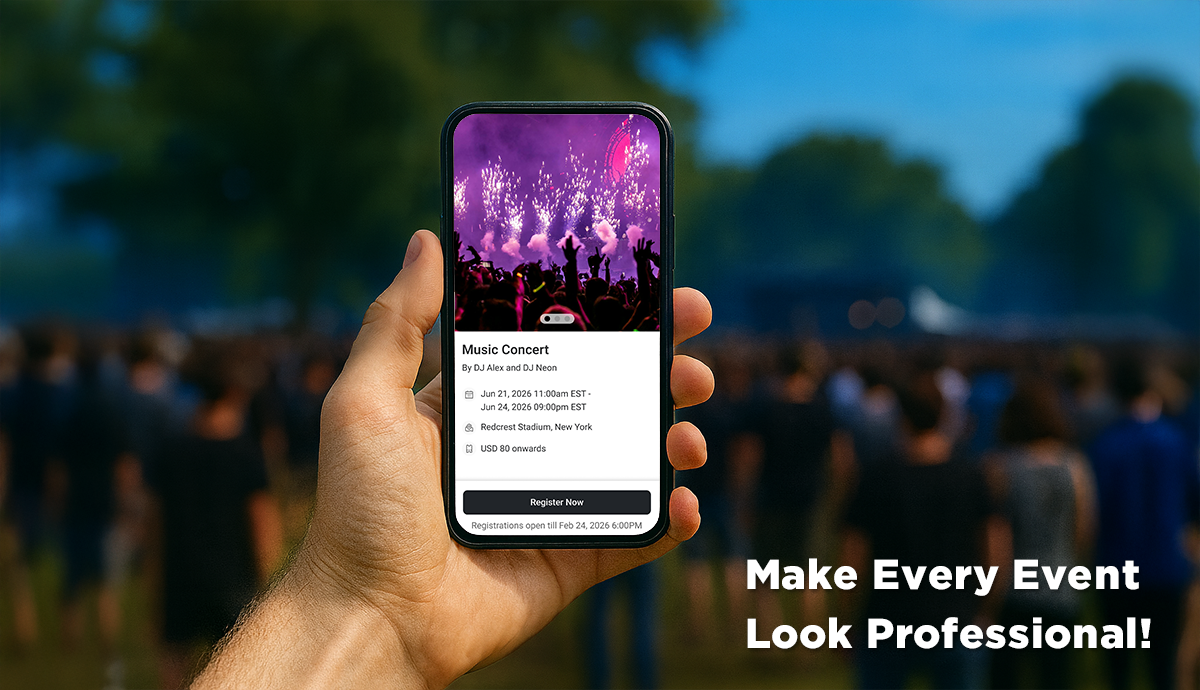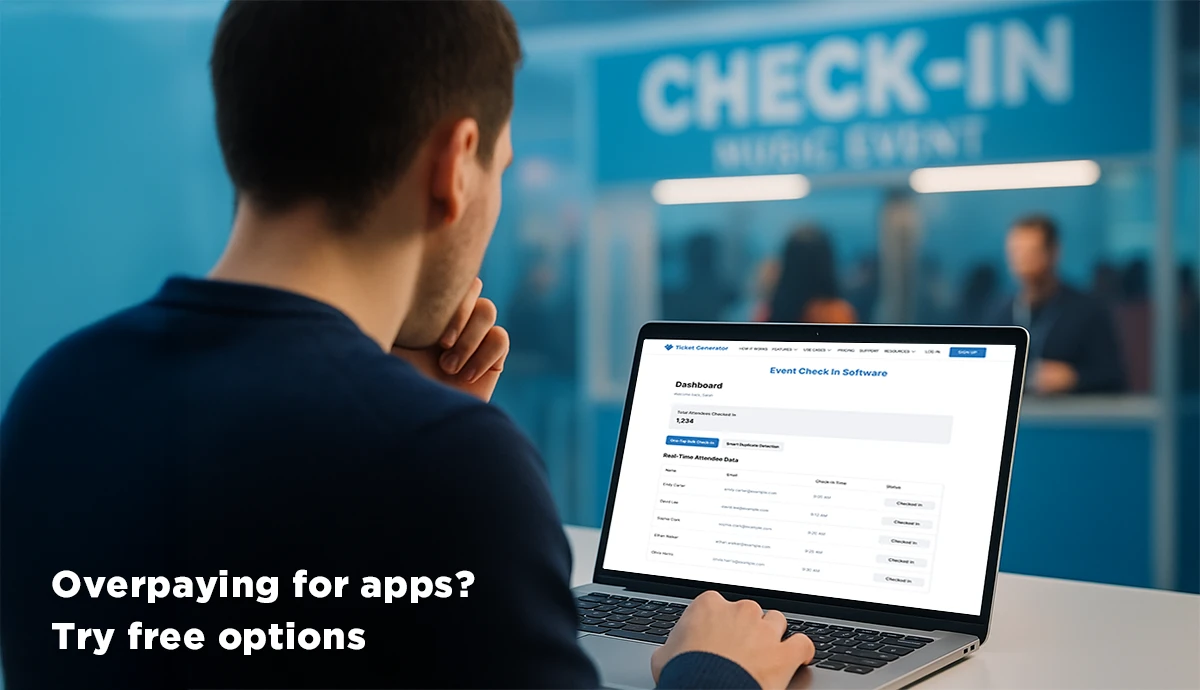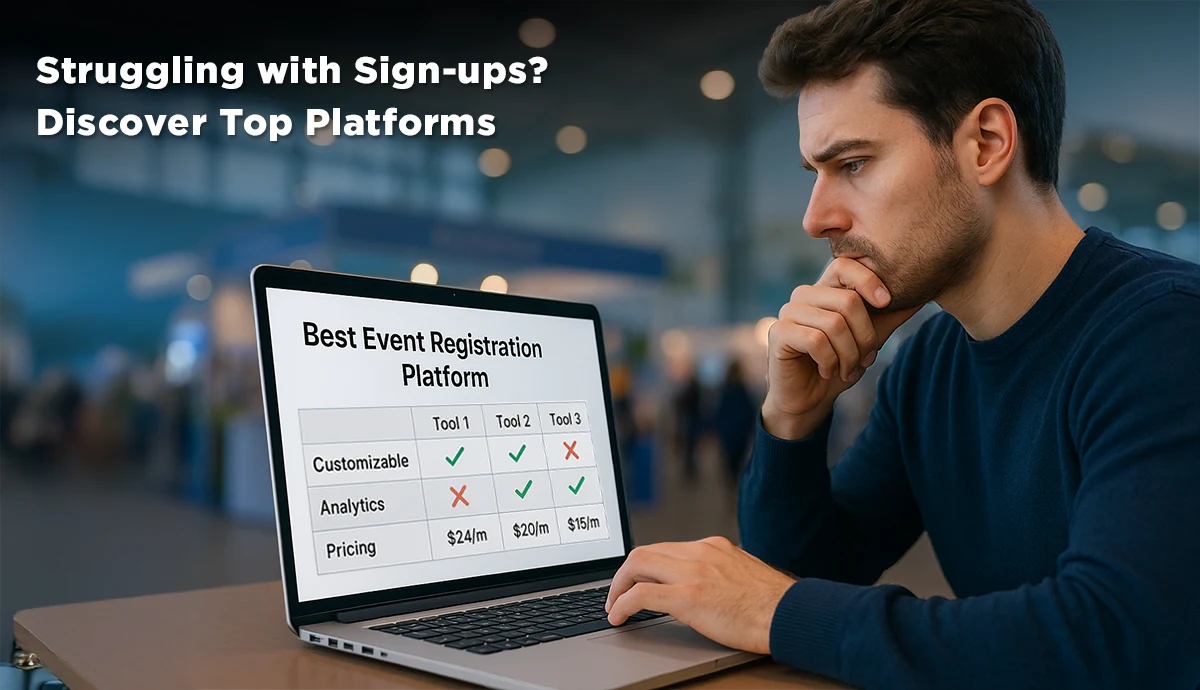Imagine waiting for Taylor Swift or BTS’s concert for years only to get handed over fake tickets. We seriously hope and pray that you don’t have to go through this misery.
But getting your hands on tickets for these or any other popular events is also not a cakewalk. With event popularity, the risk of ticket scams also goes up. These scammers not only target your hard-earned money but also your personal data.
Online frauds conduct themselves in sophisticated ways making it very difficult to identify suspicious practices.
That is why we have prepared this guide to help you understand the different types of scams, their signs, and how to avoid them.
A. What is a ticket scam?
Ticket scams or ticket frauds mean deceptive or fraudulent practices by a scammer where an individual is tricked into purchasing fake tickets. You may buy the tickets but never really receive them. These scams occur commonly in popular concerts, plays, or sporting events and can happen both offline and online.
Ticket scammers create non-existent or duplicate tickets and use them as bait to steal your money. They will advertise them attractively, manipulate the prices, and employ various other tactics to deceive buyers.
B. Common types of ticket fraud
Criminals have limitless creativity when it comes to innovating new ways to scam individuals. Here are some of the common types of ticket frauds that can be sometimes hard to recognize. Be careful.
i. Fake tickets

Fake tickets are probably the most common ticket frauds and have been in the market since the beginning. Criminals have perpetuated this scam long enough to make the product look real and sell confidently. These tickets are easier to sell when customers are over-enthusiastic about the event and their favorite star. Who would verify the authenticity of the ticket when you have scored the hottest show on Broadway anyway?
ii. Phishing scams

If you couldn't recognize a fake ticket, you probably wouldn't recognize a phishing scam either. These types of scams are usually more complex and more difficult to recognize.
The scammers orchestrate an elaborate fraud scheme by creating a legitimate-looking website that mimics a login page for the event in question. They also email the ticket holders, asking them to log in to the website to access their tickets. Once you log in all your information is captured and can be used to modify your accounts.
iii. Non-existent events

BREAKING NEWS. A scammer does not have to latch on to a real event to con you- they can simply create a fake one!
With no venue and no artists, there is only 100% profit. These scammers can approach you to sell tickets via social media sites like Facebook or Instagram or create an entirely new ‘phishing website’ that we discussed previously.
iv. Seat scams
The only good thing about a seat scam is that you get to attend the event. But you don’t get the seat you were promised. The con artists will sell you a seat they haven’t secured and will use your money to buy you a cheaper seat. They make profits while you end up paying for a seat you didn’t want.
Another seating scam to watch out for is the scattered seats. This particularly happens in group deals, where you seem like you scored a great deal only to realize later that none of the seats are together.
💡Pro Tip - The best way to avoid this is to make sure you use a trustworthy ticketing platform like Ticket Generator. It offers secure seat selection where you can select and reserve your choice of seats online at registration checkout.
v. Social media scams

Many people resort to social media to sell tickets they no longer need, and scammers are taking advantage of this by creating fake accounts. These con artists spend months creating a believable profile and deactivating their accounts once the payment is made. To avoid this, it is best not to buy from social media if you don’t know the person in question.
C. Precautions to take when buying from different sources
While there is a major risk when not buying from official sources or ticketing platforms, some people buy from other sources. This could be due to tickets being sold out at official sites. If you also happen to buy from sources other than ticketing platforms, take these precautions for secure ticket purchases-
i. Fan-to-fan website
Many people move to ‘fan-to-fan’ websites when they can’t get a ticket from an official seller. Make sure to keep these things in mind while doing so-
- Tickets should be at the original price of the ticket or less
- Some sellers charge an extra fee, but they are subjected to a refund if the tickets aren’t as the seller described them
- Sellers may include up to 15% to cover original booking fees
- Make sure to read the terms and conditions properly
- If there are no clauses for refund, the tickets are probably fake
ii. Reselling sites
Reselling or secondary ticketing sites resell tickets after they buy them from official sellers and others, including private sellers.
Before choosing for selling site, make sure you get the following information from them for secure ticket purchases-
- The kind of tickets you are buying - for example your seating arrangement. See if the tickets are for standing areas or have a restricted view
- The original price of the tickets
- The total price you will have to pay can include any buyer fee which is usually around 10% of the face value
- If the seller is a business, they should give their name and business address. This information can be useful later
- Any restrictions on who can use the tickets- for example, if under 18 is restricted they might ask for proof of identity
Also, when you use a resold ticket, you need to be aware that-
- Your entry might be refused if you are not the same person mentioned on the ticket
- If the event organiser decides to cancel resold tickets you will have an invalid ticket and be refused entry. The event or the artist's website might put up a disclaimer if they are going to do this
- The tickets can be fake
- The tickets might have been sold several times making it difficult for you to know who you are buying from or if they are a private seller
You can report a ticket seller to Trading Standards if they cause you problems like-
- Giving you wrong or misleading information - like selling you a ticket for a seat but sending you a ticket for a standing area
- Using unfair terms like putting a restriction on reselling tickets in very small illegible print
- Didn’t give you the unique reference numbers for your tickets
iii. Private seller
Buying from a private seller typically means you bought the tickets from someone through an auction site or social media site. It is best to meet the seller face to face before you pay them.
You can meet them in a public place but make sure to take someone along for safety. Avoid buying from someone selling tickets in the street near the venue as the tickets might be fake.
D. Essential tips for secure ticket purchases
Whenever you are buying tickets for an event, don’t forget to question these scenarios-
- Are you being rushed? A scammer will often force and rush you into deciding so it is important to stop and think through it
- Is it too good to be true? A cheap ticket for your favorite artists can sound like a great deal but are the tickets real
- Are you purchasing from an official source? Official sources include the authorized ticket vendor, the event organizer, or the venue. Make sure to Google the name of the ticket retailer yourself to avoid potential scams
- Does the seller have a good reputation? Make sure to read reviews from a third party like Trustpilot if you are buying tickets from a reseller or online marketplace
- Are you using a secure payment method? Avoid using unsecured payment methods such as bank transfer, wire transfer, or cash. A reputable and trusted company will not ask you to pay this way
After you are aware of the essential ticket-buying approaches, you need to take further steps to secure ticket purchases. Here is how you can do it-
i. Use a reliable and trustworthy ticketing platform
The first and foremost step is to choose a ticketing platform that offers security, convenience, and customer service. A reputable ticketing platform will have features like fraud detection, QR Code scanners, data protection, payment processing, refund management, and great customer support.
ii. Follow official event listing and promotion schedules
To avoid scams, trust information only coming from official sources. Make sure to read their event announcement carefully to avoid any confusion.
Don’t buy tickets from a website if-
- They are offering tickets that are not officially on sale yet
- You don’t have any contact information or address of the seller
- You cannot see ‘http’ at the beginning of the web address when you are on the site as it can mean unsafe payment
iii. Avoid buying tickets from sponsored links
Sponsored links show up in Google search results because someone pays to put them up there and not because of the algorithm. So, never think that it is safe to buy from a sponsored site just because it is at the top spot of Google. No matter how good the headline sounds, think twice before clicking a link.
Instead, you can type the address into your search bar directly and find legit search results. Also, make sure to double-check the URL. The best way to avoid this scam is to buy from the official vendor from a reliable ticketing site like Ticket Generator.
iv. Double-check every detail
Before you make the final payment, make sure the tickets and other information seem legit. If any information seems suspicious, don’t proceed until you confirm everything.
Here are some of the things you should double-check-
- Check that the seats you are buying exist on the seating map and that the price and descriptions given match up with reality
- Check vendor details and contact information
- Read all the terms and conditions and check the refund policy
- If the venue offers digital tickets, don’t buy from someone trying to sell you paper tickets
- Check vendor information when buying from a secondary market to make sure your source is legitimat
- Make sure the site does not store your credit card information.
E. What to do if you get scammed?
Despite all your efforts, if you still fall prey to the scams, don’t be ashamed. It is not your fault. You can take action by following the steps below-
- Contact customer care - if you have bought the tickets from an authorized reseller, reach out to their customer service team and file a complaint
- Report the incident- file a report with your local law enforcement
- Contact your credit card company- if you used your credit card to make the purchase, report the problem immediately to your credit card company
F. Secure ticket purchases with Ticket Generator
Ticket Generator is a safe and standard event ticketing platform that you can use to buy and sell tickets. Each ticket is enabled with a unique QR Code and ticket code to add an extra layer of security for secure ticket purchases. It features
- Online registrations and check-ins where prospective attendees can scroll through the details of the event and make fully informed decisions
- Event ticket registration to eliminate the hassle of printing tickets. It allows users to send tickets via email, SMS, or both. Guests can show these tickets at the entry gate and get them validated
- Event ticket validation to verify attendant details with QR codes minimizing long wait times. The entire check-in process is easy, touchless, and affordable
- Safe payment processing with several options for collecting payments electronically
- Assigned seating to allow guests to sit at a designated location they select in advance eliminating the scope of any seating scams
Sign up now to get your first 10 tickets for free!






.gif)






